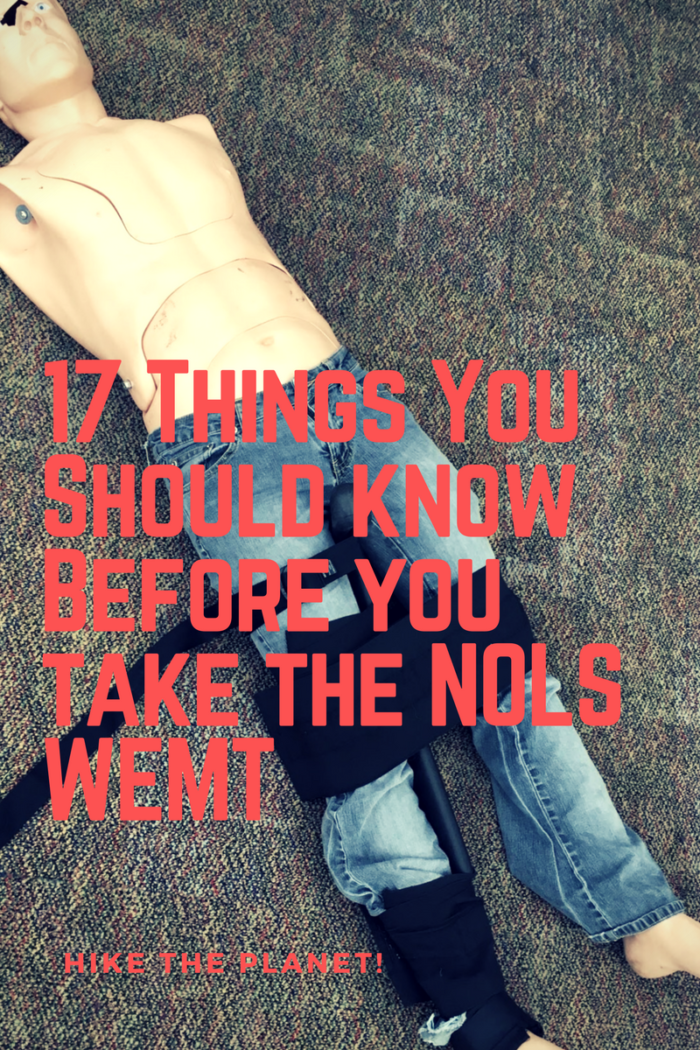NOLS WEMT: Things to Keep in Mind
Table of Contents
I believe that anyone who spends any time recreating outdoors should have some measure of wilderness medicine training. Over the years, a number of organizations have decided that they feel the same way, and have created wilderness medicine courses. Chief among these is NOLS, who offer their NOLS WEMT (Wilderness Emergency Medical Technician) course to provide students with the knowledge to perform high quality, back country emergency medicine.
Recently, I was lucky enough to enroll in a NOLS WEMT course. I found it to be an awesome, fun experience. That being said, it was also very challenging, and I came across many pitfalls. Going in to the course, I wish that I had known what to expect, and how to better prepare myself.
I want to compile this list to help prospective WEMT students know what to expect, so that they may succeed in the course. In writing this, I am being careful not to give too many details about the course away, as the course comes with certain surprises.
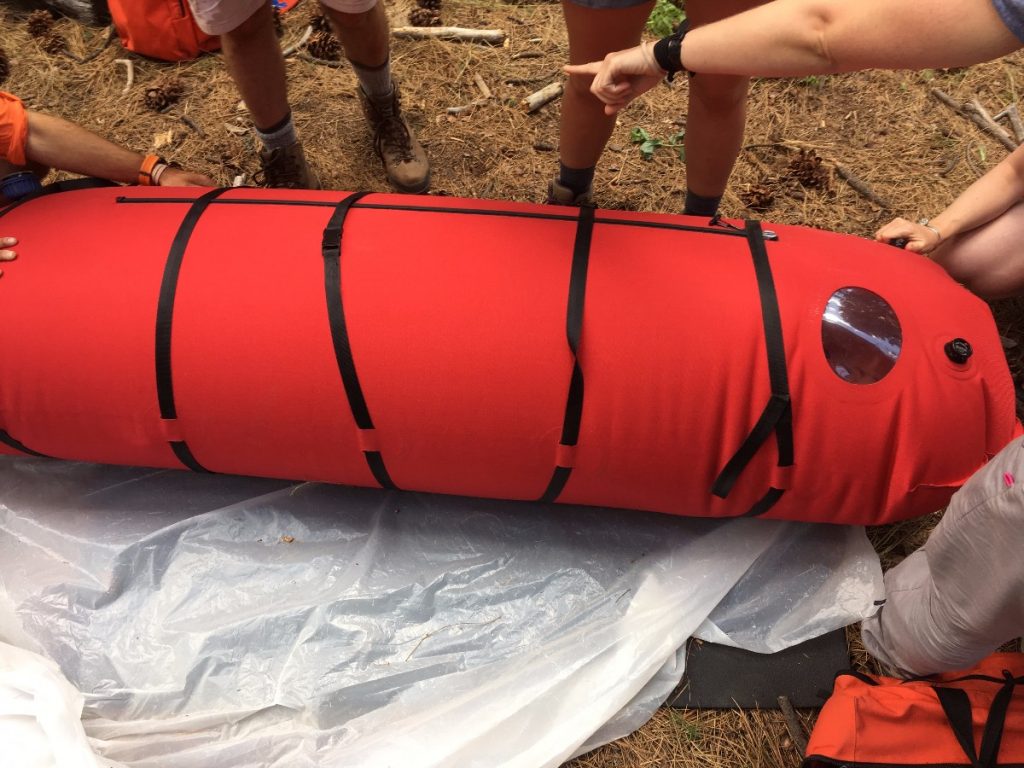
Related: Safe Hiking during the COVID-19 Pandemic
1. Make Sure that the NOLS WEMT is Right For You
In the world of wilderness medicine, a WEMT certification ranks as the highest level of training. You will learn all the skills of a WFR (wilderness first responder) or a WFA (Wilderness First Aid), with all the requisite knowledge that an EMT is required to know.
That being said, it is only worth it to take this class if you intend to work in medicine, or emergency services. If you are only interested in learning basic wilderness medicine, it will be both less time consuming and more affordable to take a WFA or a WFR. These classes will teach you the basics of emergency medicine, but not enough to get you a job as an emergency medical provider. You will learn enough to keep someone stable in the wilderness until further help arrives.
2. Get The Right Gear
You will be told the requisite supplies that you need for your course before you start. These include basic office supplies, a laptop or tablet, nice clothes for your clinical rotations, the textbook, and other tools. Make sure to bring a headlamp, as you may find yourself working in the dark. I used the Petzl Tikka Headlamp (Buy: Amazon). It is lightweight, compact, and bright. I also recommend bringing a waterproof notebook for taking field notes.
Besides these, I also recommend investing in a nice stethoscope. While the class stethoscopes are adequate, they are not that great. They have been used and abused through untold WEMT, WFR, and WFA classes over the years, and may no longer be of the best quality. One classmate brought a personal, quality stethoscope, and the difference between his, and the classroom stethoscopes was night and day. Lung and heart sounds on the class stethoscopes sounded muffled and quiet. Using the professional stethoscope, body sounds were clear, crisp, and loud.
The brand that I was recommended was Littman. They offer the most affordable, professional quality stethoscope.
You can purchase one here:
Buy: 3M Littmann Lightweight II S.E. Stethoscope (Amazon)
3. You Will Not Have Any Free Time
The first thing that our instructors told us is that we would not have any free time during the course. Any time for leisure would be would instead be used for studying, sleep, and scenarios. Many days, we would have evening sessions where we would practice skills, or learn new lessons. There were regular quizzes and tests that demanded study time on the weekends, and whole days would be devoted to clinical rotations.
Silly me. I brought along all of my rock climbing gear, hoping that I would be able to go climbing on the weekends. Instead, my rope, trad rack, and quickdraws gathered dust beneath my dorm room bed. If only I had a handy internet list to refer that told me what to expect of the NOLS WEMT, then I wouldn’t have had to haul all my shiny climbing gear.
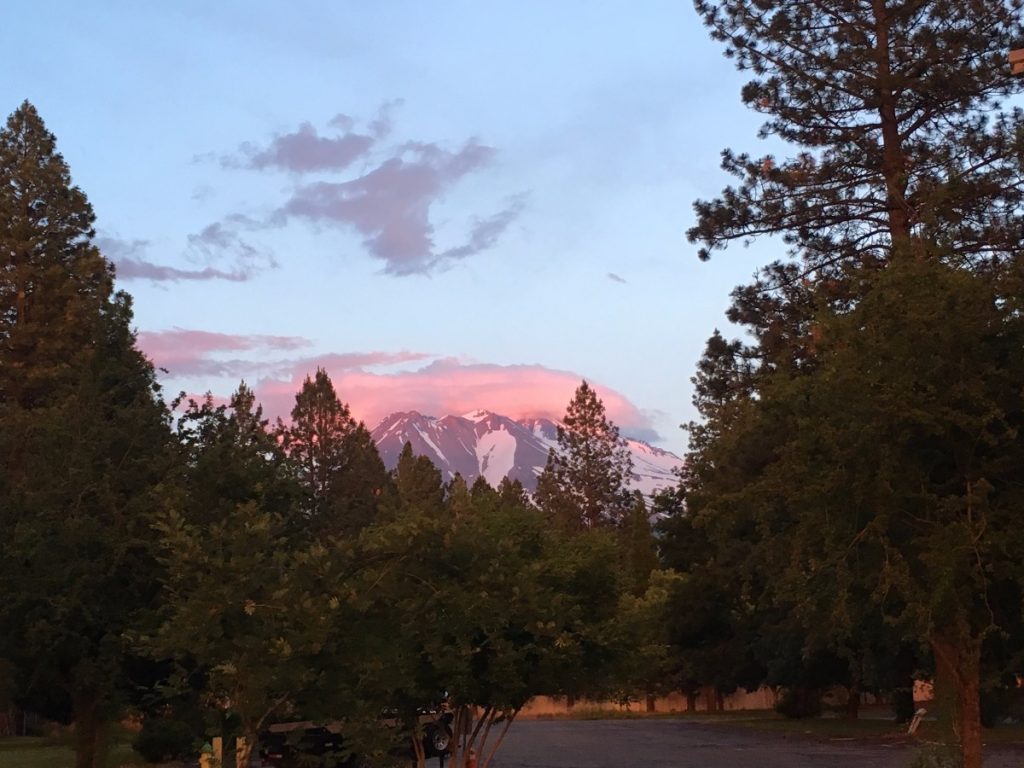
4. The Meals Provided are Delicious!
During the week, our class was served breakfast, lunch, and dinner. We ate in a cafeteria, and the food was different each day. A wide variety of food was provided, ensuring that we would have plenty of calories to make it through our rigorous program. After all, the brain consumes the most resources of any organ, so it is imperative that you eat any chance you get. The cafeteria staff did a great job of accommodating dietary restrictions. Students who were vegan, vegetarian, gluten free etc. had plenty of options. And don’t worry-ample caffeine was provided for late night study sessions.
5. The NOLS WEMT Instructors are Top Notch
NOLS likes to hire the best instructors they can for their wilderness medicine courses. Every instructor has years of emergency medical experience in the fore that they bring to the table, often from wildly different backgrounds. The instructors are good at bringing in their own experiences to enhance your learning environment. This makes for both an entertaining, and productive classroom.
Each instructor also brings along experience in wilderness education and guiding. They tailor their lessons and scenarios to fit the wilderness context. You will find that your instructors will be founts of knowledge in applying medicine in the back country, such as how turn a hardshell into an ad hoc sling and swathe, or what first aid gear to bring along when backpacking.
6. Buy the Textbook Early, and Study Everything Before Your Class Starts
Upon signing up for the NOLS WEMT, you will receive informational literature detailing the class curriculum and requirements. They will tell you which textbook you need, and will detail several chapters that they recommend reading before the class starts. Read these chapters and MEMORIZE them. That means all the vocabulary, concepts, and techniques. As soon as the class starts, the topics will start coming at you fast, and being prepared ahead of time will put you in a solid position to hit the ground running.
In fact, I would just read the whole book, if I could do it over again. The book assigned for my class was Emergency Care 13th Edition by Limmer and O’keefe. I believe that this is the text used for all NOLS WEMT classes (note: this may be subject to change). The nature of emergency medicine is that it is constantly changing as new research, technologies, and techniques emerge. Thus, EMT course curriculum will adapt accordingly. Additional wilderness medicine textbooks will be supplied to you at the start of your class, and are covered by your course fee.
You can purchase the EMT textbook at this link:
Buy: Emergency Care 13th Edition (Amazon)
Disclaimer: The above link is an Amazon.com Affiliate link. If you click the link and make a purchase, I will receive a small commission. Thanks!
7. Time Management is Key
Time management is the most important skill you could have on this course. If you are bad a time management now, your WEMT course will kick your butt. You need to find a careful balance between practical skills, studying, and sleep in order to succeed in your course. If you don’t, you will be playing catch up with the material, and your ability to pass the final tests may suffer.
Don’t forget about leisure time, either. It is important to be able to decompress between classes. Personally, I liked to go on short trail runs. It ensured that I could take my mind off the course material, while still getting some exercise. I only did this in sparse moderation, however. You cannot devote too much time to relaxation, less you may find yourself struggling in the class.
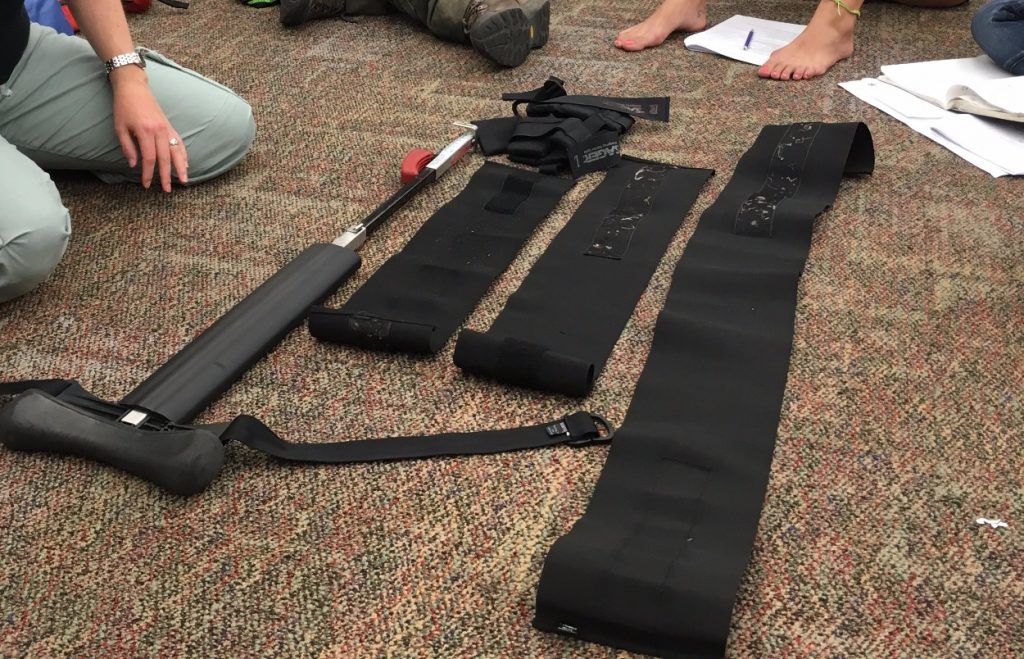
8. Don’t Fall Behind in Class
It is VERY important that you do not all behind in class. Between scenarios, night sessions, clinicals, and tests, you will find it very hard to catch up on missed material. Read all the chapters, and learn all the vocab.
Don’t neglect the practical skills, either. You need to practice these skills regularly. I found that the practical skills helped to reinforce many of the lessons found in the textbook. I devoted an entire Saturday just to get my rapid trauma assessment skills up to speed. By the end of that day, I was able to get my time well below the test limit. Unfortunately, that meant that less of that day was spent studying, which I also needed to focus on.
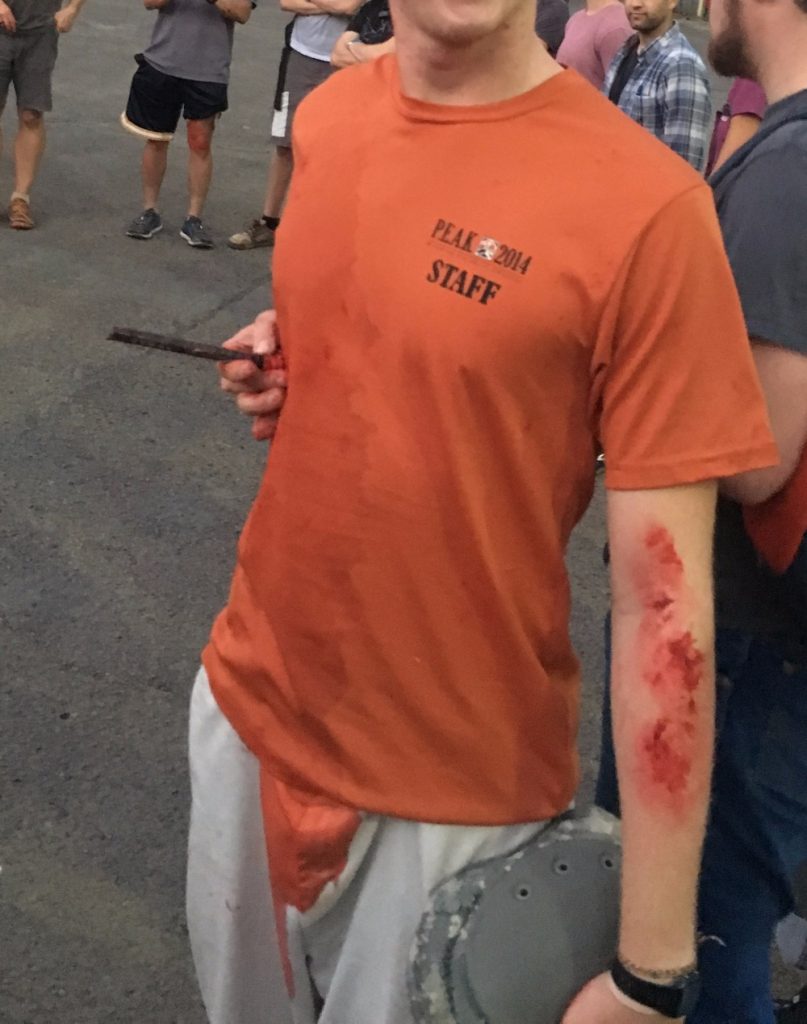
9. Funding is Available through Loans and Scholarships
The truth is that if you are going to take an EMT course, the NOLS WEMT lies on the more expensive end of the spectrum of EMT courses. That being said, I think it is worth every penny. If you are finding the price tag too steep, know that NOLS offers scholarships. Fortunately, I was able to secure a scholarship to help me pay for my course. After your course, write a thank you letter, and NOLS will send it to your donor.
Scholarships are not the only method for aid. Federal Financial Aid (a.k.a. student loans) are also available to help cover the cost. If you are struggling to pay for the course out of pocket, consider this option as well.
10. Take The NREMT Written Exam A.S.A.P.
It is important that you take the NREMT written exam as soon as you pass your NOLS WEMT. All of the information will still be fresh in your brain, thereby increasing your chances of passing the exam. If you decide to wait, you will be playing catch up with the material, and may find it hard to recall much of the information come test day.
I stress finding time to rest after completing your course. The day after my course, I was still fatigued and sleep deprived. I made the mistake of scheduling my NREMT for the next morning. Come testing time, I found it difficult to focus on the exam questions, and I ended up not passing. This was wholly my fault, as I did not set aside time to prepare for the test. NOLS likes to boast their 94% first time passing rate for the NREMT. This is true, if you pass their WEMT course, you will more than likely pass the exam first time. I was one of the lucky few to fail the NREMT written exam.
11. Your Classmates Will Come From a Diverse Set of Backgrounds
I did not realize how diverse my class would be. I envisioned them to all be of the same mountain town dirtbag stock (like myself). In fact, this demographic only made up a small portion of the class. Instead, there were retirees, veterans, medical students, firefighters, artists, SAR techs, and more. This made for an interesting, productive learning environment. Students could offer their own, unique perspectives on lessons, which occasionally helped me to understand certain lessons better.
12. Pay Close Attention During Your Clinical Rotations
During you clinical rotations, you will be working among experienced doctors, nurses, paramedics, and EMTs. They say that most of your learning in emergency medicine will be done while working. You need all the skills and knowledge taught in the classroom to complete the course and pass the NREMT, but realize that these working medical professionals will be able to provide insight that is hard to find in the classroom. If you can, pick their brains for a moment. You many learn a few nuggets of wisdom that will help you pass the class, and become a well rounded EMT.
13. Pack For All Weather Conditions
In the course of my class, we went from rainy, 40 degree (Fahrenheit) conditions, to 100 degrees with humidity. Bring a jacket and rain gear, but also be sure to pack for warm conditions.
If it doesn’t snow or rain on you, your WEMT instructors will see to it that they will find some way to make you wet, cold and miserable. Come to class prepared. As your instructors might say, if you cannot do wilderness medicine in miserable conditions, then you should not be taking the course.
14. Be Prepared to Fail
I don’t want to give away any spoilers about your course, but I promise that you will be put in some interesting situations. Many scenarios are designed so that you fail. Rather, you learn that there is no way to optimally “succeed”. If you feel frustrated, know that these are only to help you learn that realities of medicine, in that their is not always an easy, clear cut solution.
In many cases, your instructors will add stress to the scenario, such as loud noises, poor “weather”, and realistic moulage (make up and practical effects designed to mimic injuries. This is often bloody and graphic). It is important to be able to block out this stimuli, and instead remember your training.
In some cases, it may help to tuck your ego away momentarily. Your instructors are not trying to fail you. They are merely trying to help you learn.
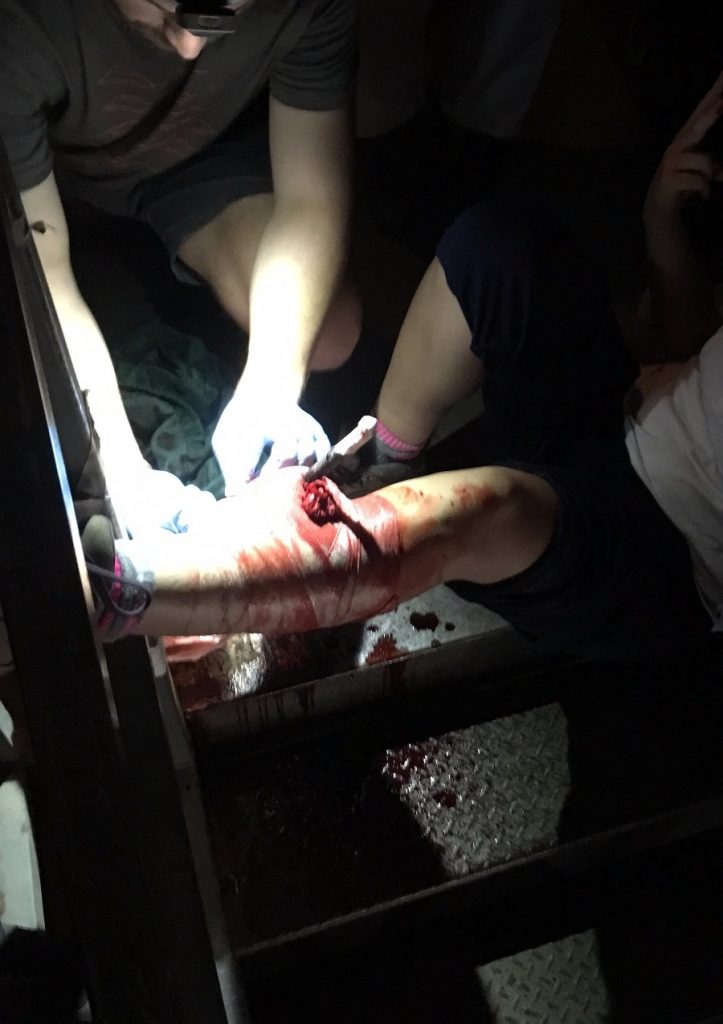
15. Don’t Expect to Get Much Sleep
Or rather, try and get sleep when you can. The demands of this course do not hold sleep as a priority, but (if you’re anything like me) you’ll need sleep to succeed. I don’t recall ever getting a full nights rest for the entire course, even on weekends where I had a little more freedom to sleep in. These small deprivations added up over the course, and by the end, I felt very sleep deprived. It was not uncommon to see my fellow classmates lulling off to sleep in the middle of a lecture. Other times, I was so tired that I found it hard to pay attention in class.
Thus, it was imperative that I found a workaround. I intended to “hack” my sleep patterns where I could sleep less at night, but find small breaks during the day to rest. Essentially, I learned to master the power nap. At lunch, after class, and between study sessions, I would find the quietest, darkest place I could and rest for 20 minutes. Combining this method with caffeine allowed me to squeak by.
16. Get Used to Living in Close Quarters
At the beginning of your NOLS WEMT course, you are assigned a dorm room, along with a roommate. If you have attended university, this may not feel so out of the ordinary. I had never lived in a dorm, nor shared a room with anyone else in my entire life. It took a little getting used to. Thankfully, my roommate turned out to be really cool, and we had no trouble getting along.
It may help to establish certain boundaries and rules with your roommate. After all, you will be spending the next month with them. It will be no help for learning if you are constantly at each others throats.
17. Budget Money for the Weekends
While I mentioned that you won’t have any free time, you should budget some cash beforehand to feed yourself, and blow off some steam. My class did not get served meals on the weekend, so we needed to find other means to feed ourselves. This meant eating at restaurants, and buying food from grocery stores.
The money spent from eating out every weekend added up quickly. Buying food at grocery stores proved to be a much more budget minded choice. I bought sandwich fixings, and snack bars. Your classmates will want to go see a movie, or go bowling, so consider those extracurricular activities in your budget as well. That being said, you need to devote the majority of your weekend to studying, so don’t go overboard.

- The Best Campsites Around Big Bear California - February 26, 2021
- Hiking to the Hollywood Sign Via the Brush Canyon Trail - July 13, 2020
- Dirt Cheap Hiking and Backpacking Gear: The Most Affordable Gear on the Internet - July 4, 2020
